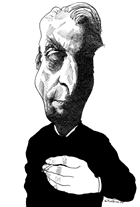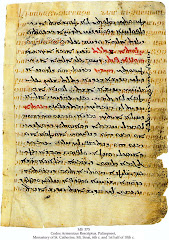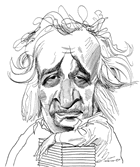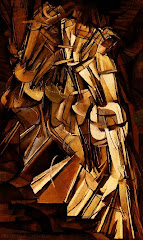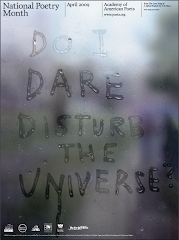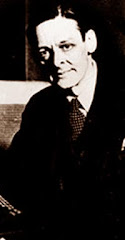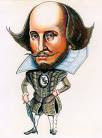http://www.papervision3d.org/demos/panorama/
I think we all want this...
Sunday, May 10, 2009
Friday, May 8, 2009
Now that it's all over...
THANK YOU, EVERYONE!!
It was fantastic having class with you all. Thanks for your patience with me! I had a great time working with you, and I hope that you all have excellent summers! Be daring! Have adventures!!
And congrats seniors!! Good luck with everything that happens after Saturday!
<3 Abby
It was fantastic having class with you all. Thanks for your patience with me! I had a great time working with you, and I hope that you all have excellent summers! Be daring! Have adventures!!
And congrats seniors!! Good luck with everything that happens after Saturday!
<3 Abby
Monday, May 4, 2009
Hi everyone!
So I just wanted to wish you all a fantastic summer AND also wanted to let you all know that I really enjoyed learning/discussing with you all! This was one of the more enjoyable classes I've taken at CSC, and I think part of that had to do with the fact that we had such a great group.
To the seniors: you guys are GREAT and I wish you nothing but the best!
-Jessy
So I just wanted to wish you all a fantastic summer AND also wanted to let you all know that I really enjoyed learning/discussing with you all! This was one of the more enjoyable classes I've taken at CSC, and I think part of that had to do with the fact that we had such a great group.
To the seniors: you guys are GREAT and I wish you nothing but the best!
-Jessy
Thursday, April 30, 2009
Monday, April 27, 2009
For the final...
I know, you don't want to think about the final. It's okay. I understand.
But I'm still going to give you this "assignment."
For the final, please post your own theory about literature (reading it, writing it, studying it, whatever) that answers the "why," "what," and "how" questions. This doesn't have to be anything immense... just your ideas on it.
To start with: does the author really die with the creation of a text? Does the reader complete the text? Is Shakespeare really all that great? What do you think of the canon? Mini-canons? Alternative canons? And how does any/all of what we've talked about relate to US as individuals who study English and literature? (These are not actually questions you need to answer - just things to ponder to get your thoughts moving if you need a mental push.)
Please bring these posts (or at least the ideas) with you to the final exam on Monday so that you have some ideas to work with for the discussion (which YOU lead!).
P.S. I'm happy to drive some folks to Ann Page's... I can fit four plus me. Just let me know! :)
But I'm still going to give you this "assignment."
For the final, please post your own theory about literature (reading it, writing it, studying it, whatever) that answers the "why," "what," and "how" questions. This doesn't have to be anything immense... just your ideas on it.
To start with: does the author really die with the creation of a text? Does the reader complete the text? Is Shakespeare really all that great? What do you think of the canon? Mini-canons? Alternative canons? And how does any/all of what we've talked about relate to US as individuals who study English and literature? (These are not actually questions you need to answer - just things to ponder to get your thoughts moving if you need a mental push.)
Please bring these posts (or at least the ideas) with you to the final exam on Monday so that you have some ideas to work with for the discussion (which YOU lead!).
P.S. I'm happy to drive some folks to Ann Page's... I can fit four plus me. Just let me know! :)
Thursday, April 23, 2009
Shakespeare's Wit in Caliban
The quality of Caliban that I noted throughout the play is the idea that he is perceived as a monster who lacks intelligence and dignity, yet he may be one of the few characters who possesses conscience and fear. During act 4, scene 1 as Caliban, Trinculo, and Stephano are going towards the tent and their judgment is compromised by greed for the clothes, Caliban is the only one who tries to warn them to see beyond that.
He states,
“ Good lord, give me favour still.
Be patient, for the prize I’ll bring thee to
Shall hoodwink this mischance. Therefore speak softly-
All’s hushed as midnight yet” (200-205).
He continues to warn them of their foolishness, and this truly exhibits his intellect and awareness of his surroundings. He is considered the monster, but he is the one who knows how to maneuver in this situation. If we were to look at it from this perspective we could see how Shakespeare’s wit and thought process could be shown through Caliban’s words and actions.
He states,
“ Good lord, give me favour still.
Be patient, for the prize I’ll bring thee to
Shall hoodwink this mischance. Therefore speak softly-
All’s hushed as midnight yet” (200-205).
He continues to warn them of their foolishness, and this truly exhibits his intellect and awareness of his surroundings. He is considered the monster, but he is the one who knows how to maneuver in this situation. If we were to look at it from this perspective we could see how Shakespeare’s wit and thought process could be shown through Caliban’s words and actions.
Caliban as Shakespeare
Alright. So.
I had a hard time finding lines said by Caliban that could be interpreted as Shakespeare's own voice, because I don't know much about Shakespeare's opinions or views of the world.
I finally decided upon Caliban's plot to take Prospero's books and kill him. (3.2.87-103)
Although he is completely drunk, Caliban shows that he is a) observant and b) capable of manipulating and leading those who think otherwise (Stephano & Trinculo)
In these lines, Caliban explains that they should sneak up on Prospero during his nap and steal his books (he is useless without them). This demonstrates that Caliban is extremely observant - it reflects Shakespeare's own observation and depiction of the human race through his plays. In addition to this, it seems that Caliban is much more knowledgable about the island and how to go about defeating Prospero. In many, if not all of Shakespeare's plays, one gets a feeling that he knows much more than the audience and the characters do.
To be further discussed!!
I had a hard time finding lines said by Caliban that could be interpreted as Shakespeare's own voice, because I don't know much about Shakespeare's opinions or views of the world.
I finally decided upon Caliban's plot to take Prospero's books and kill him. (3.2.87-103)
Although he is completely drunk, Caliban shows that he is a) observant and b) capable of manipulating and leading those who think otherwise (Stephano & Trinculo)
In these lines, Caliban explains that they should sneak up on Prospero during his nap and steal his books (he is useless without them). This demonstrates that Caliban is extremely observant - it reflects Shakespeare's own observation and depiction of the human race through his plays. In addition to this, it seems that Caliban is much more knowledgable about the island and how to go about defeating Prospero. In many, if not all of Shakespeare's plays, one gets a feeling that he knows much more than the audience and the characters do.
To be further discussed!!
Caliban

Act 2, Scene 2, Line 155
CALIBAN: I'll show thee the best springsl I'll pluck thee berries;
I'll fish for thee, and get thee wood enough.
A plague upon the tyrant that I serve!
I'll bear him no more sticks but follow thee,
Thou wondrous man.
TRINCULO: A most ridiculous monster - to make a wonder of a poor drunkard.
CALIBAN: I prithee, let me bring thee where crabs grow,
And I with my long nails will dig thee pignuts,
Show thee a jay's nest, and instruct thee how
To snare the nimble marmoset. I'll bring thee
To clust'ring filberts, and sometimes I'll get thee
Young scamels from the rock. Wilt thou go with me?
I'm not entirely sure I picked a completely legitimate passage...but this definitely shows the importance of nature in the play, especially when it comes to Caliban. He's a product of nature as well as being a living representation of it. I also felt that he spoke particularly beautifully and eloquently in this passage while using words pertaining to nature and its importance. He references Prospero as well in a negative light, calling him "the tyrant that I serve" (that's about Prospero, right?). These lines remind me of the conversation we had in class the other day about the importance of the knowledge Caliban possesses as opposed to the books and words Prospero values but does not necessarily understand. It's also impressive that he speaks so eloquently when drunk!
Wednesday, April 22, 2009
Talk about taking the good lines...
I can certainly see how Caliban reflects Shakespeare rather than Prospero, however it is very difficult now to find a good example that hasn't been shown already by Abby or Megan. So instead, my post is going to pose a question that can be discussed here or in class. Caliban's last line, in my book is listed as lines 351-354 in Act 5 Scene 1. Prospero's line to Caliban was "Go, sirrah, to my cell./Take with you your companions. As you look/To have my pardon, trim it handsomely." to which Caliban answers:
Ay, that I will, and I'l be wise hereafter
And seek for grace. What a thrice-double ass
Was I to take this drunkard for a god,
And worship this dull fool!
I know we (or at least I remember mentioning) that what seems to be Shakespeare's point is that while some people (i.e. Prospero) get their power and eloquence from books, others (i.e. Caliban) know how to speak naturally and as eloquently too. However this quote makes it sound that Caliban (a.k.a. Shakespeare) DOES have respect for those who speak "by the book" I guess you could say. In this way, Shakespeare/Caliban realizes that not all people who claim to speak well actually can, as we see with the drunkards Stephano and Trinculo. Do other people see this as I do?
Ay, that I will, and I'l be wise hereafter
And seek for grace. What a thrice-double ass
Was I to take this drunkard for a god,
And worship this dull fool!
I know we (or at least I remember mentioning) that what seems to be Shakespeare's point is that while some people (i.e. Prospero) get their power and eloquence from books, others (i.e. Caliban) know how to speak naturally and as eloquently too. However this quote makes it sound that Caliban (a.k.a. Shakespeare) DOES have respect for those who speak "by the book" I guess you could say. In this way, Shakespeare/Caliban realizes that not all people who claim to speak well actually can, as we see with the drunkards Stephano and Trinculo. Do other people see this as I do?
Caliban Displaying Shakespeare's Voice...?
I have a feeling that this is going to end up being a long post...I can't really get around it.
This first part is for Abby. Here is another passage that I found, in which Caliban seems to be the hero and Prospero is portrayed as the villain (however, this passage does not necessarily indicate that Caliban voice is actually representative of Shakespeare's voice):
Act 3, Scene 2
Lines 46-62 in my edition of the text
Several of Caliban's lines here certainly incriminate Prospero from seemingly seizing the island from right under his nose. For example:
"As I told thee before, I am subject
to a tyrant, a sorcerer, that by his cunning hath
cheated me of the island." (46-48)
"I say by sorcery he got this isle;
From me he got it. If thy Greatness will,
Revenge it on him, for I know thou dar'st,
But this thing dare not." (59-62).
However, now that I have finished reading the play, I am not entirely convinced that Caliban is speaking for Shakespeare throughout the text. First of all, Caliban's last action in the play is tidying up Prospero's cell before his master's departure. Prospero is the one returning home. Prospero is an old man (similar to Shakespeare at this point) who reflects on his age at several points during the play. Prospero also has a significant name (sounds a lot like "prosperous" to me), and he gives up his magic during Act 5 with an lengthy speech, in which he frees Ariel from his spiritual bondage to Prospero. I connect this scene to Shakespeare giving up his reigns, so to speak. Shakespeare is giving up art/writing, which can easily be related to magic and spirtual experiences.
Also, if we take the Epilogue as a verse that was actually written by Shakespeare, Prospero is asking for applause for Shakespeare. He is also asking the audience to forgive Shakespeare for "bewitching" their minds with his art (his plays). He's making a strong statement on art's ability to invade the mind (not always in a positive way).
I'm sure I will be able to discuss this a bit more thoroughly in class tomorrow...
This first part is for Abby. Here is another passage that I found, in which Caliban seems to be the hero and Prospero is portrayed as the villain (however, this passage does not necessarily indicate that Caliban voice is actually representative of Shakespeare's voice):
Act 3, Scene 2
Lines 46-62 in my edition of the text
Several of Caliban's lines here certainly incriminate Prospero from seemingly seizing the island from right under his nose. For example:
"As I told thee before, I am subject
to a tyrant, a sorcerer, that by his cunning hath
cheated me of the island." (46-48)
"I say by sorcery he got this isle;
From me he got it. If thy Greatness will,
Revenge it on him, for I know thou dar'st,
But this thing dare not." (59-62).
However, now that I have finished reading the play, I am not entirely convinced that Caliban is speaking for Shakespeare throughout the text. First of all, Caliban's last action in the play is tidying up Prospero's cell before his master's departure. Prospero is the one returning home. Prospero is an old man (similar to Shakespeare at this point) who reflects on his age at several points during the play. Prospero also has a significant name (sounds a lot like "prosperous" to me), and he gives up his magic during Act 5 with an lengthy speech, in which he frees Ariel from his spiritual bondage to Prospero. I connect this scene to Shakespeare giving up his reigns, so to speak. Shakespeare is giving up art/writing, which can easily be related to magic and spirtual experiences.
Also, if we take the Epilogue as a verse that was actually written by Shakespeare, Prospero is asking for applause for Shakespeare. He is also asking the audience to forgive Shakespeare for "bewitching" their minds with his art (his plays). He's making a strong statement on art's ability to invade the mind (not always in a positive way).
I'm sure I will be able to discuss this a bit more thoroughly in class tomorrow...
Subscribe to:
Posts (Atom)

